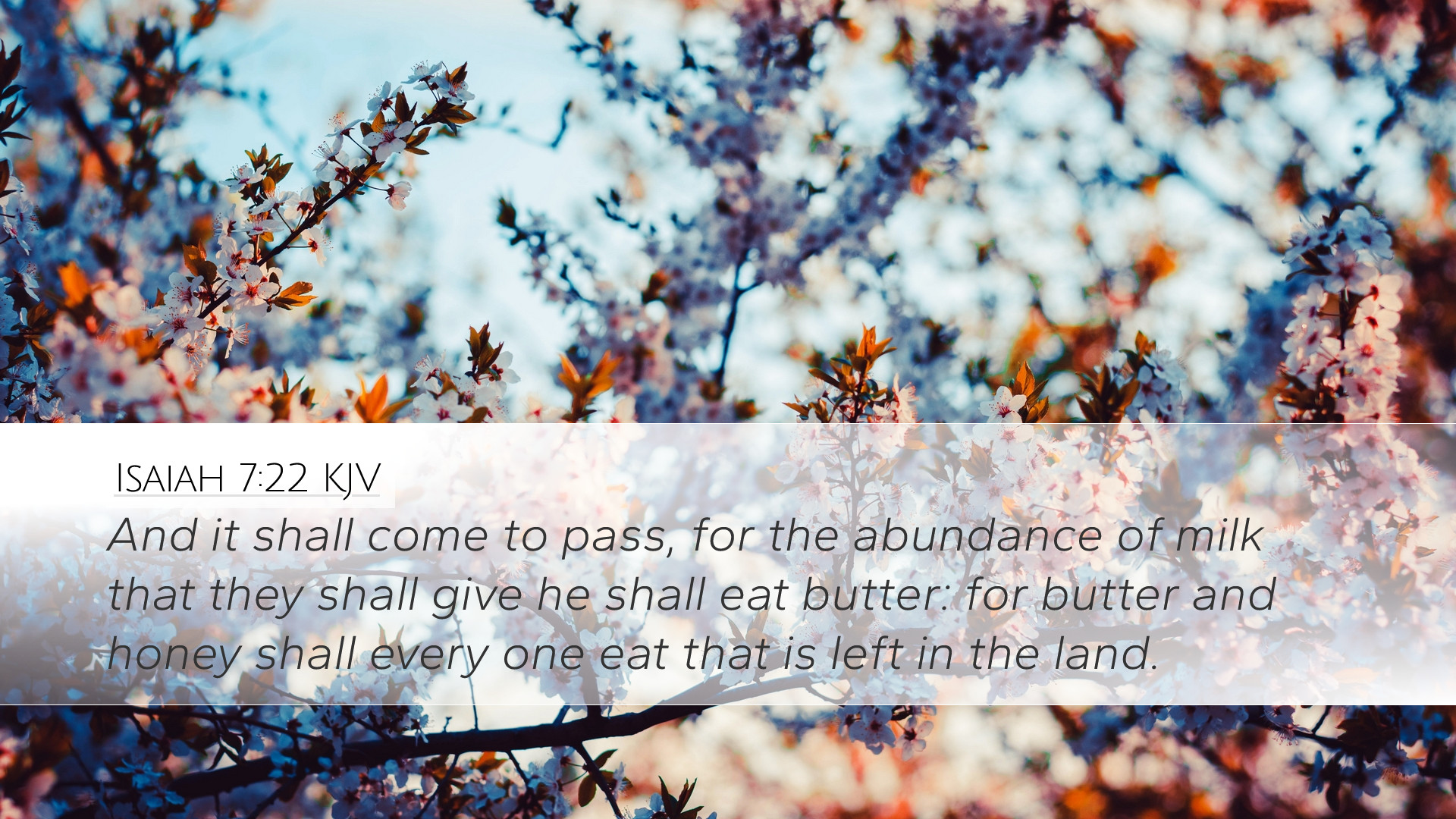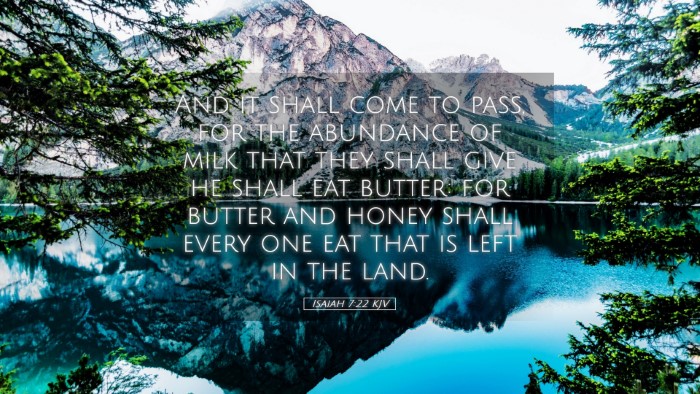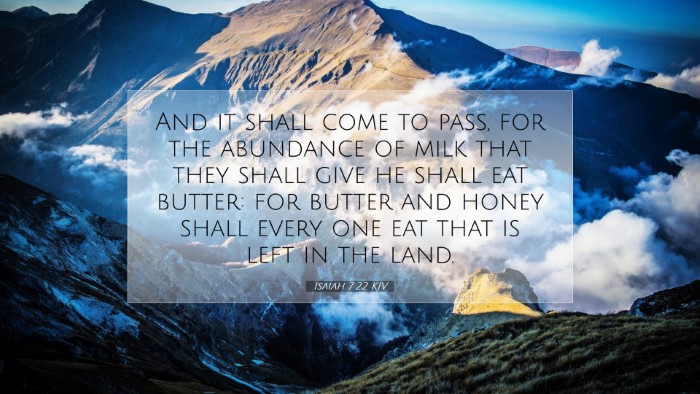Commentary on Isaiah 7:22
Isaiah 7:22 states: "And it shall come to pass, for the abundance of milk that they shall give, he shall eat butter: for butter and honey shall everyone eat that is left in the land."
This verse encapsulates a deeper theological and practical significance in the landscape of Isaiah's prophecy, particularly in the context of Ahaz's reign and the socio-political milieu of 8th century BCE Judah. This commentary synthesizes insights from esteemed public domain scholars including Matthew Henry, Albert Barnes, and Adam Clarke to provide a multifaceted understanding of this scripture.
Contextual Background
In the backdrop of Isaiah 7, the Kingdom of Judah is besieged by the kingdoms of Aram and Israel, leading to a state of fear and uncertainty among King Ahaz and his people. Isaiah is sent by God to encourage Ahaz, reminding him that the threats against Judah will ultimately fail. The promise of a sign—a virgin shall conceive—is also interwoven in this chapter, indicating God's sovereign power amidst chaos.
Theological Insights
This verse metaphorically illustrates the impending conditions of Judah. The abundance of milk signifies sustenance and fertility, while butter can be viewed as a symbol of luxury and divine provision. Scholars draw parallels between these food items and spiritual nourishment.
- Divine Provision: Matthew Henry highlights how God’s providence ensures that even in times of scarcity, He provides for His people. The reference to “butter and honey” illustrates a time of unexpected abundance, likely as a sign of God's mercy and blessing.
- Judgment and Remnant: Albert Barnes notes that the phrase "everyone that is left" conveys a dual message of judgment and mercy. Though many would suffer the consequences of sin, a remnant would still partake of God’s blessings. This indicates hope even amidst prophesied judgment.
- Symbolism of Food: Adam Clarke remarks that food in scripture often symbolizes knowledge and spiritual food. The 'butter' represents knowledge of divine truths, while 'honey' symbolizes sweet and delightful teachings, indicating that those left in the land will enjoy not just physical sustenance but spiritual enlightenment.
Practical Applications in Ministry
Pastors and ministry leaders can derive several lessons from Isaiah 7:22:
- Hope in Scarcity: Just as God assured Judah of His provision, modern believers are reminded that God will meet their needs abundantly, even in dire circumstances. Ministries should encourage congregants to trust in God’s provision.
- Emphasis on Remnant Theology: The concept of a remnant serves as a reminder that God preserves a group of faithful individuals in every generation. This can motivate believers to remain steadfast in faith and mission.
- Nutrition for the Soul: Reflecting on spiritual nourishment, pastor teachings can center on the richness of God's Word, inviting congregants to feast on the 'butter and honey' of scripture, emphasizing growth in knowledge and understanding of God's character and promises.
Conclusion
Isaiah 7:22 serves as a profound reminder of God's providence amidst challenging times. Through this verse, we see a rich tapestry of God's grace, the hope of a faithful remnant, and the assurance of spiritual sustenance—rich food for both body and soul. For pastors, students, theologians, and Bible scholars, the verse encourages a deeper exploration of God’s faithfulness in every season of life.


